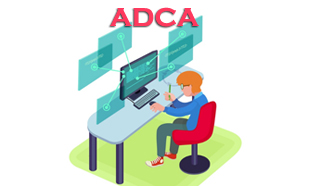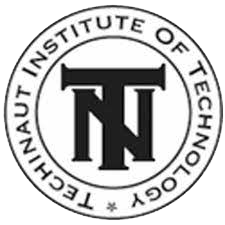0
A Deep Dive into the "Advance Diploma in Computer Application (ADCA)" Program at DINESH EDUCATION, a Techinaut Institute of Technology Franchise in SEMILIGUDA, ODISHA.
In today's digital age, proficiency in computer applications is indispensable for individuals seeking to excel in various fields. Recognizing this need, Dinesh Education, a franchise of Techinaut Institute of Technology, offers a one-year Advance Diploma in Computer Application (ADCA) course. Situated in Semiliguda, Odisha, this program equips students with a comprehensive understanding of computer fundamentals, software applications, and emerging technologies. This essay provides a detailed overview of the ADCA course curriculum, covering its objectives and each module in depth.
OBJECTIVES OF THE COURSE:
The ADCA course at Dinesh Education aims to achieve several key objectives:
- Basic Computer Skills: Introduce students to fundamental concepts of computing, including hardware, software, and operating systems.
- Computer Appreciation: Cultivate an understanding and appreciation of the role of computers in various aspects of modern life.
- Computer Organization: Provide insights into the structure and components of a computer system.
- Operating Systems: Familiarize students with different operating systems and their functionalities.
- MS Office Applications: Develop proficiency in Microsoft Office tools such as Word Processing, Spreadsheet, and Presentation software.
- Information Technology and Society: Explore the impact of information technology on society and contemporary issues related to IT.
- Internet and Networking: Introduce students to the basics of internet usage, networks, and communication protocols.
- E-mail Communication: Enable students to utilize e-mail for professional and personal communication effectively.
- Introduction to Programming: Introduce the principles of programming and algorithmic problem-solving.
- Algorithms for Problem Solving: Develop analytical and problem-solving skills through algorithmic thinking and problem-solving techniques.
COURSE CURRICULUM:
Basic of Computer:
This module serves as a foundation, covering the basic concepts of computer hardware, software, input/output devices, and storage devices. Students learn about the history of computers, types of computers, and the role of computers in different fields.
Computer Appreciation:In this module, students gain an understanding of the importance of computers in modern life. Topics include the impact of computers on society, the economy, education, healthcare, and entertainment. Students explore the evolution of computing technology and its implications for various industries.
Computer Organization:This module delves into the internal structure and components of a computer system. Topics covered include CPU architecture, memory hierarchy, input/output systems, and peripheral devices. Students learn about the function of each component and how they work together to execute instructions.
Operating System:Students learn about different operating systems, such as Windows, Linux, and macOS. The module covers basic operations, file management, user interface, and system configuration. Students also gain hands-on experience with operating system installation, setup, and troubleshooting.
MS Word Processing:This module focuses on word processing software such as Microsoft Word. Students learn to create, edit, format, and manage documents. Topics include text formatting, page layout, headers and footers, tables, graphics, mail merge, and document collaboration.
MS Spreadsheet Package:Students explore spreadsheet software like Microsoft Excel. They learn to create, format, and manipulate spreadsheets for data analysis, calculations, charting, and financial modeling. Advanced topics include functions, formulas, data validation, pivot tables, and macros.
MS Presentation Package:This module covers presentation software such as Microsoft PowerPoint. Students learn to create dynamic and engaging presentations with slides, graphics, animations, and multimedia elements. They explore techniques for effective storytelling, audience engagement, and presentation delivery.
Information Technology and Society:This module examines the impact of information technology on various aspects of society, including education, healthcare, governance, commerce, and entertainment. Students discuss ethical, social, and legal issues related to IT, such as privacy, security, intellectual property, and digital divide.
Introduction to the Internet:Students are introduced to the concept of the Internet, its history, structure, and basic protocols. They learn about web browsers, search engines, URLs, hyperlinks, and web navigation. Practical exercises include accessing websites, conducting online research, and evaluating web resources.
Internet Networking:This module covers the basics of computer networks, including LANs, WANs, protocols, and network devices. Students learn about network topologies, communication models, and network security principles. They gain practical experience in network configuration, troubleshooting, and maintenance.
E-mail Communication:Students learn to use e-mail effectively for professional and personal communication. Topics include composing and sending e-mails, managing e-mail accounts, organizing messages, attaching files, and e-mail etiquette. Students also explore advanced features such as filters, labels, and autoresponders.
Introduction to Programming:This module introduces students to the principles of programming and algorithmic problem-solving. Topics include variables, data types, control structures, functions, and algorithms. Students learn to write and debug simple programs in a high-level programming language such as Python.
Algorithms for Problem Solving:Students develop analytical and problem-solving skills through algorithmic thinking and problem-solving techniques. They learn to analyze problems, design algorithms, and implement solutions using pseudocode and flowcharts. Practical exercises include solving problems related to sorting, searching, and data manipulation.
CONCLUSION:
The Advance Diploma in Computer Application (ADCA) course at Dinesh Education offers a comprehensive curriculum designed to equip students with essential computer skills and knowledge. From basic computer fundamentals to advanced software applications and programming concepts, the course covers a wide range of topics relevant to today's digital world. By completing this program, students can enhance their employability and pursue further education or career opportunities in various fields such as IT, business, education, and research. Dinesh Education remains committed to providing quality education and empowering individuals to succeed in the rapidly evolving technology landscape.
Lectures = 260 HRS
Practical/Tutorials = 260 HRS
Total = 520 HRS


